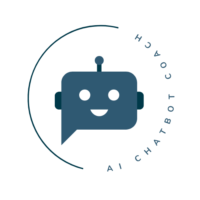
Artificial intelligence (AI) is revolutionizing the way we learn, with a range of innovative applications transforming the learning experience. From personalized learning pathways to intelligent grading systems, AI is helping educators and students achieve their full potential. Here are 10 ways AI is enhancing the learning experience:
Personalized Learning Pathways
With AI-powered algorithms, teachers can personalize learning pathways for each student, catering to their unique strengths, weaknesses, and interests. This approach ensures that each student receives a customized learning experience that meets their individual needs.
Intelligent Tutoring Systems
AI-powered tutoring systems provide real-time AI feedback to students, helping them to learn more effectively. These systems can also adapt to the student’s progress and adjust the pace and content of the lessons accordingly.
Virtual Learning Assistants
AI-powered virtual assistants can answer student questions, provide reminders, and even offer suggestions for further learning opportunities. These assistants can be available 24/7, helping students to learn at their own pace.
Intelligent Grading Systems

AI can automatically grade tests and assignments, saving teachers time and providing instant feedback to students. This approach also allows for more objective and consistent grading across all students.
Intelligent Content Creation
AI can create content that is tailored to the individual student’s learning needs. This can include videos, quizzes, and other interactive resources that help students to engage with the material in a more meaningful way.
Predictive Analytics
With predictive analytics, AI can analyze student data to predict which students are at risk of falling behind or dropping out. This allows teachers to intervene early and provide additional support to these students.
Gamification
AI-powered gamification can motivate students to learn by turning the learning experience into a game. This approach can make learning more engaging and enjoyable, helping to increase student participation and motivation.
Adaptive assessments
AI-powered assessments can adapt to the student’s level of knowledge, providing questions that are challenging but not too difficult. This approach ensures that each student is assessed fairly and accurately.
Natural language processing
AI-powered natural language processing can help students to learn a new language more effectively. These systems can provide instant feedback on grammar and pronunciation, helping students to improve their language skills in real-time.
Augmented reality
AI-powered augmented reality can provide students with immersive learning experiences, allowing them to interact with digital objects and environments in a more realistic way. This approach can help students to understand complex concepts and retain information more effectively.
Conclusion

AI is enhancing the learning experience in a multitude of ways, from personalized learning pathways to intelligent grading systems. However, as we integrate AI into classrooms, it’s crucial to consider the ethics of AI in education, ensuring technologies are fair, inclusive, and respectful of student data privacy. With these innovative applications, educators and students can achieve better outcomes more efficiently and effectively. As AI continues to evolve and become more sophisticated, it is clear that the future of education is bright.
FAQs
1. How is AI personalizing the learning experience for students?
AI uses algorithms to tailor learning pathways based on individual student strengths, weaknesses, and interests, ensuring each learner receives a customized and effective education.
2. What are intelligent tutoring systems and how do they work?
Intelligent tutoring systems provide real-time, adaptive feedback and adjust lesson content based on student progress, helping learners master topics at their own pace.
3. What role do virtual learning assistants play in education?
AI-powered virtual assistants support students by answering questions, offering reminders, and suggesting additional learning resources—available 24/7 for flexible, on-demand help.
4. Can AI help with grading?
Yes. AI-powered grading systems can automatically evaluate tests and assignments, offering instant feedback and ensuring consistent, unbiased grading across students.

